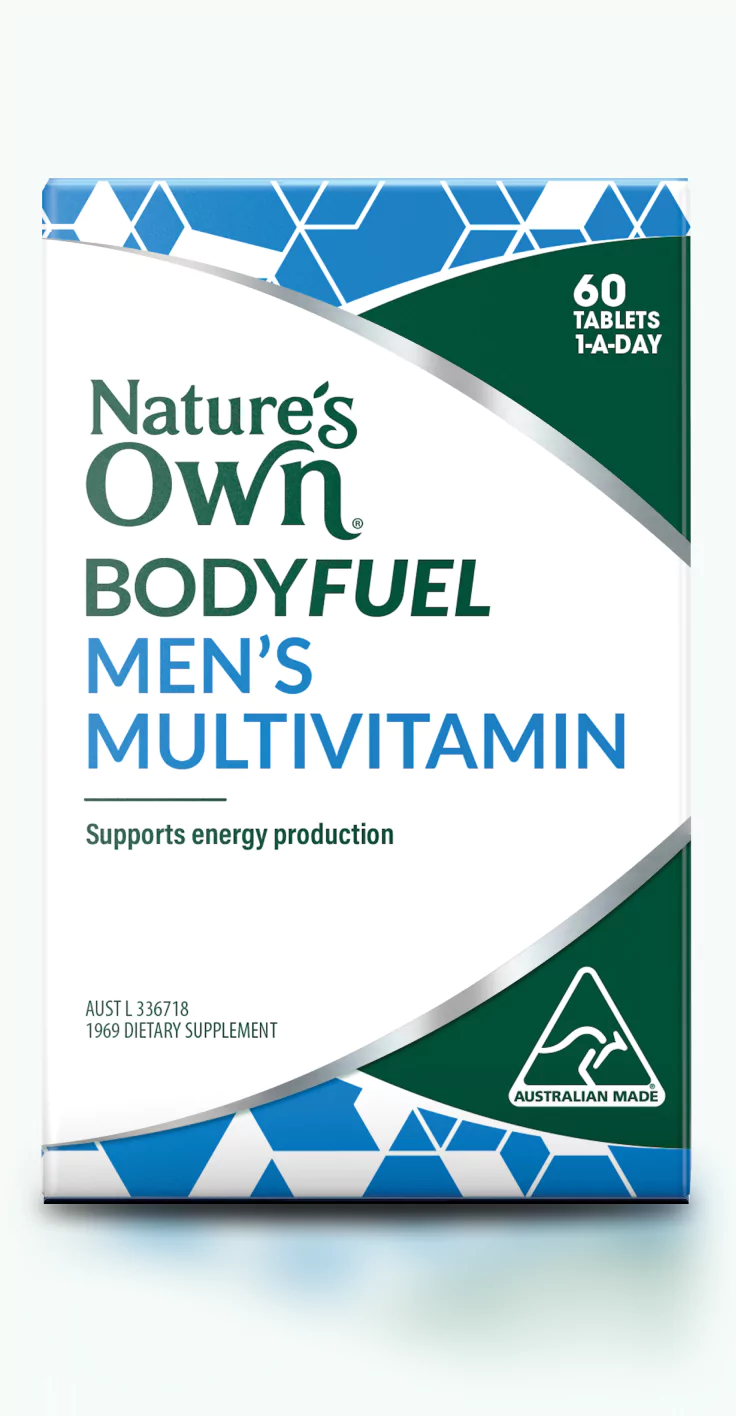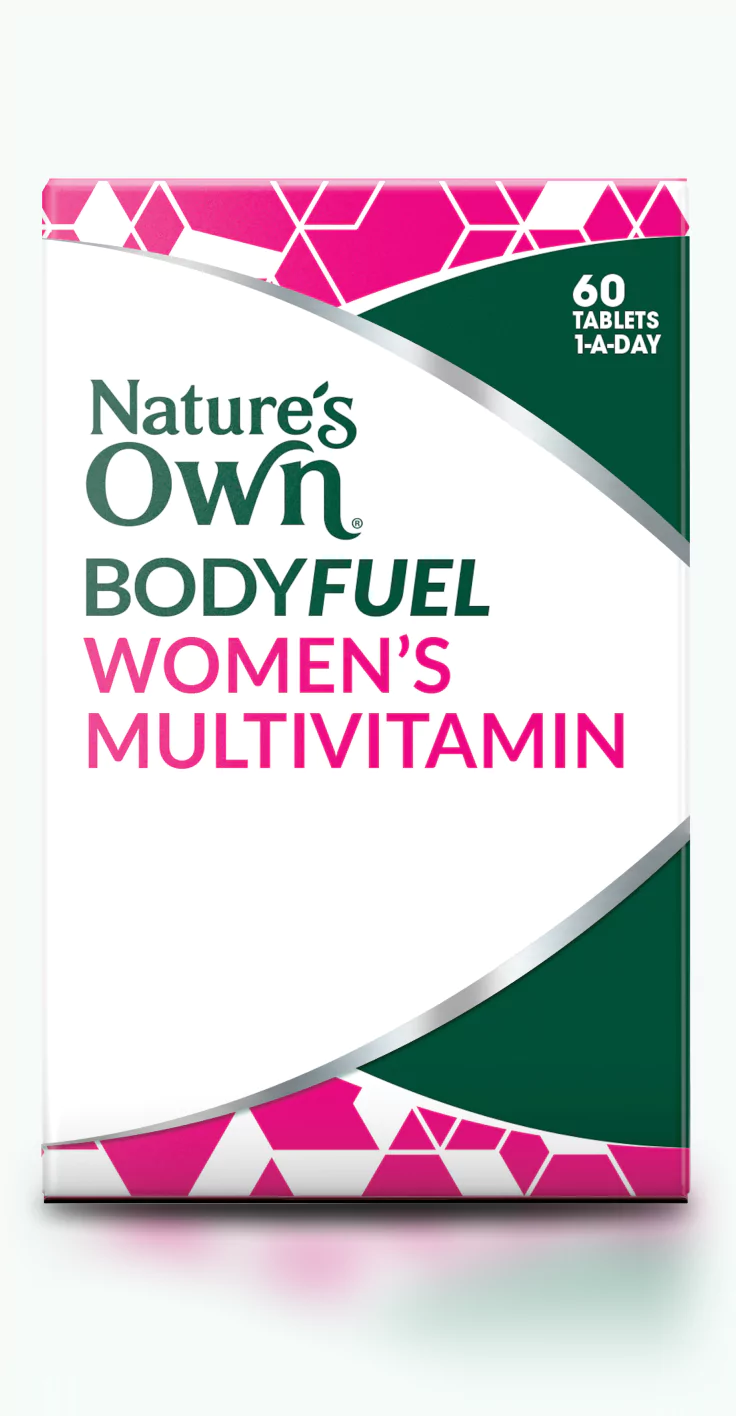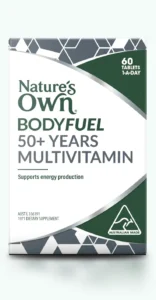
What are multivitamins and are they worth it?
In this article
What are multivitamins
Multivitamins are a combination of the key nutrients your body needs, in the form of a supplement. Depending upon your life stage and gender, there are specific multivitamin and mineral supplements to help you top up your daily diet.
In general, they normally include Vitamins A and C and the B family of vitamins, combined with a range of essential minerals such as magnesium, calcium and zinc. Some multivitamin and mineral supplements may also contain herbal ingredients to support health and wellbeing.
Who could benefit from a multivitamin? Should I take a multivitamin?
Multivitamins can help support micronutrient requirements during times when a) dietary intake is inadequate b) when nutrient requirements are increased or c) when absorption of nutrients is impaired. These times can include:
- Busy people who may not be eating in a balanced way
- Pregnant women
- Breastfeeding mothers
- Women with heavy periods
- Athletes
- Postmenopausal women
- The elderly
- People consuming severely restricted diets or low-calorie diets long-term
- Some vegetarians or vegans
- People with allergies to certain food/food groups
- People with medical conditions that make it hard for the body to absorb nutrients
- People with malabsorption problems from conditions such as diarrhoea,
- People who drink alcohol excessively (i.e. one standard drink per day for non-pregnant women and two for men)
- Smokers
Do multivitamins work?
Multivitamins boost your micronutrient levels during times of stress or when you’re not eating as well as you could be.
Incorporating Vitamin B complex into your daily nutritional regimen not only supports healthy cognitive and mental functioning in healthy individuals.
Cognition and brain function
Multivitamins help support cognition and brain function. Multivitamins can support overall energy metabolism.
Multivitamins help you with stress
A meta-analysis of randomised controlled trials showed multivitamin, in particular B vitamins, can help reduce the perception of stress and anxiety1.
Eye Health
Some studies have shown that zinc can help support eye health and may play a role in maintaining good vision as you age.
What do multivitamins contain?
Choosing a multivitamin will depend on what nutritional support you require. Do you want a general multivitamin to support energy and wellbeing? Do you need a higher amount of minerals like calcium for bones or iron to support healthy blood? A well-balanced multivitamin will contain vitamins, minerals and herbal medicines to support everyday health and wellbeing. Some of the important nutrients to look for in your multivitamin include:
B vitamins
B group vitamins are water-soluble vitamins essential for energy production and general health and well-being B vitamins are found in whole foods and may be lacking in processed foods associated with a modern western diet. Supporting B vitamin levels through supplementation may be beneficial during busy times when you need micronutrient support, when your dietary intake is inadequate.
Iron
Iron is a dietary mineral involved in many processes in the body, including the formation of haemoglobin which transports oxygen in the blood. Several factors can inhibit the absorption of iron from food, including phytates in plant forms of iron2. Women are more vulnerable to low iron due to menstrual blood loss. Iron supplementation can help support iron levels when dietary intake is inadequate.
Calcium3
Calcium is an important mineral for building bone strength. Bones also act like a calcium bank, from which the body withdraws the calcium it needs when levels in the blood are too low. If calcium intake is inadequate over a long time, your bones may lose calcium and eventually become more brittle and prone to breaking. After 30 years of age, both men and women start to lose bone mass naturally. Postmenopausal women need to ensure they get enough calcium because bone loss is more rapid in the first few years after menopause. Looking for a multivitamin with higher amounts of calcium can help boost your body’s supply of this valuable mineral.
Vitamin D
Very few foods in nature contain vitamin D. The majority of vitamin D is produced by the body itself when the skin is exposed to sunlight. It’s an important vitamin that promotes calcium absorption and enables healthy mineralisation of bones. Many factors can contribute to low vitamin D levels, including vegetarian diets, covering your skin when in the sun, spending many hours indoors. Vitamin D supplementation may be a beneficial way to boost your vitamin D levels.
Zinc
Zinc is found in all tissues of the body, although the muscles and bones contain most of it. It helps the healthy functioning of the immune system. During pregnancy, infancy, and childhood, the body needs zinc to grow and develop properly. Zinc also helps connective tissue formation It’s important to ensure this valuable mineral is in any multivitamin you choose.
Magnesium
Magnesium is a mineral found in a wide variety of foods, including green leafy vegetables, legumes, nuts, seeds and wholegrains. Magnesium is needed for the healthy functioning of the heart and muscles. Muscles require magnesium to contract and relax4, as well as for protein metabolism. A multivitamin and mineral supplement can help support magnesium levels when dietary intake is inadequate.
Multivitamin and mineral supplements help support you when you’re busy, under stress or not eating well. They can help your body produce energy and general wellbeing. Look for a quality multivitamin and mineral that has the extra vitamin and minerals you need for your life right now.
References
[1] Long SJ, Benton D. Effects of vitamin and mineral supplementation on stress, mild psychiatric symptoms, and mood in nonclinical samples: a meta-analysis. Psychosomatic Medicine 2013;75:144–53
[2] Hunt J. Bioavailability of iron, zinc, and other trace minerals from vegetarian diets. The American Journal of Clinical Nutrition. 2003;78(3):633S-639S
[3] DRI – Dietary Reference Intakes – Calcium and Vitamin D20122DRI – Dietary Reference Intakes – Calcium and Vitamin D. Institute of Medicine of the National Academies, , ISBN: 13‐978‐0‐309‐16394‐1. Nutrition & Food Science. 2012;42(2):131-131.
[4] Swaminathan R. Magnesium Metabolism and its Disorders. Clin Biochem Rev 2003; 24: 47-66


